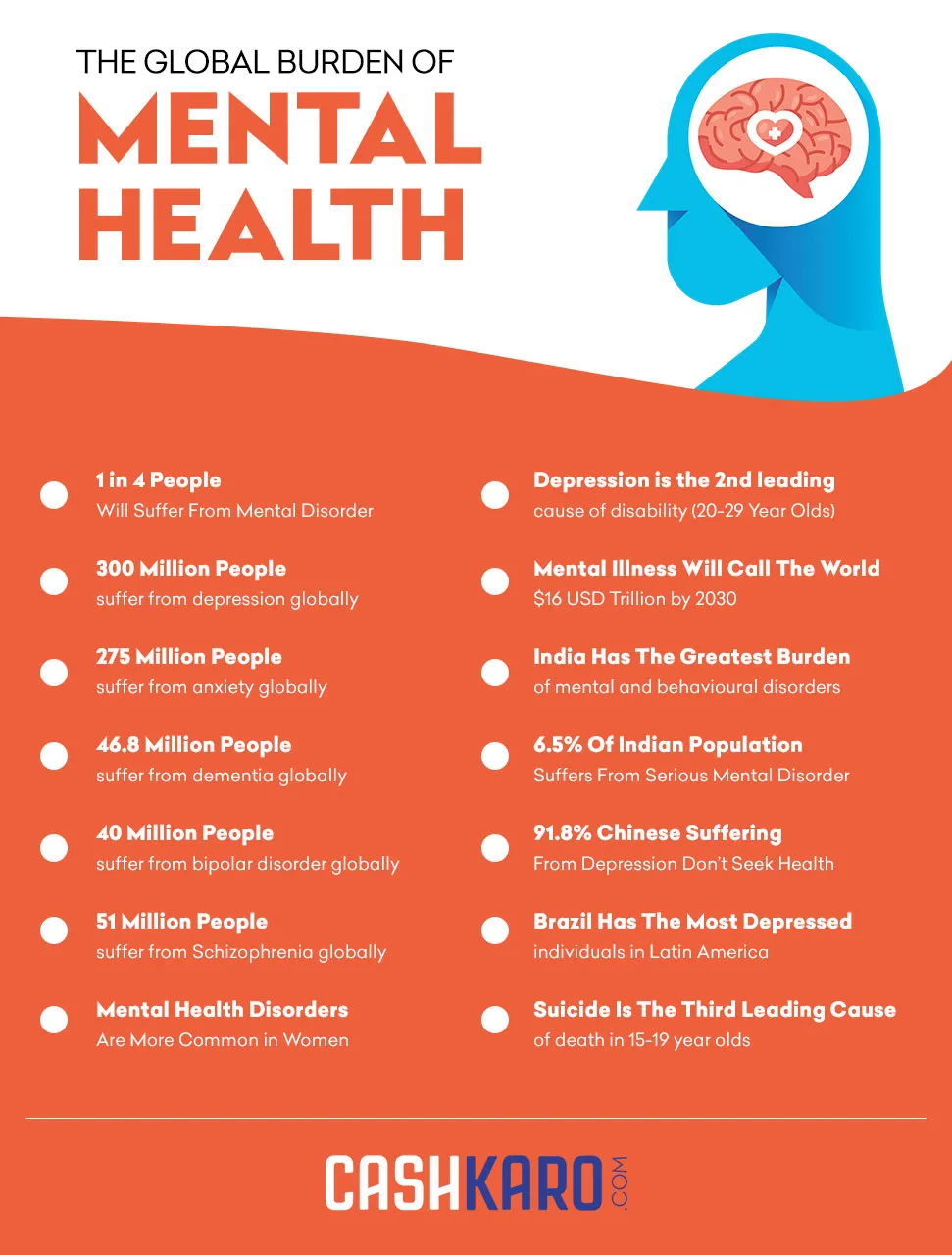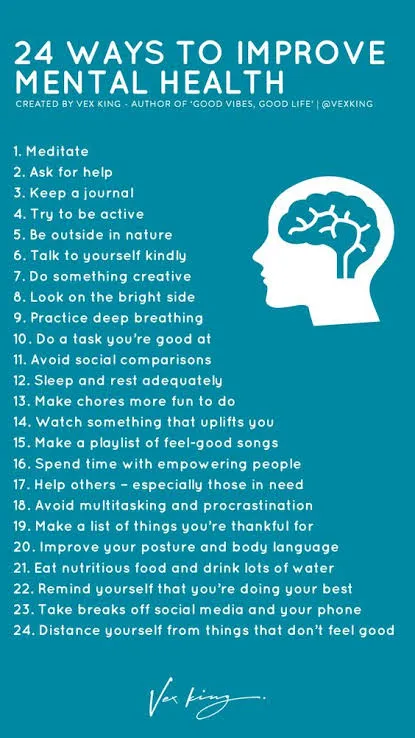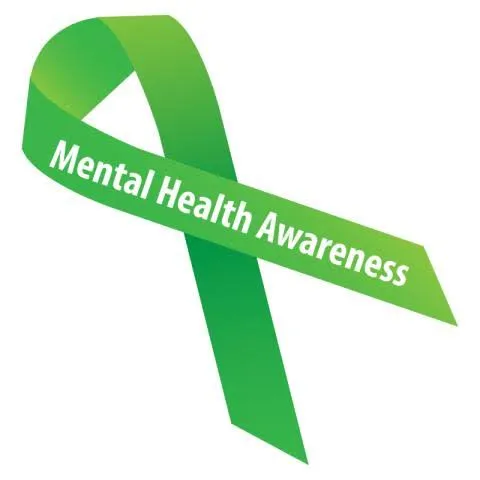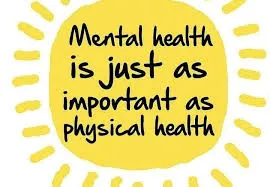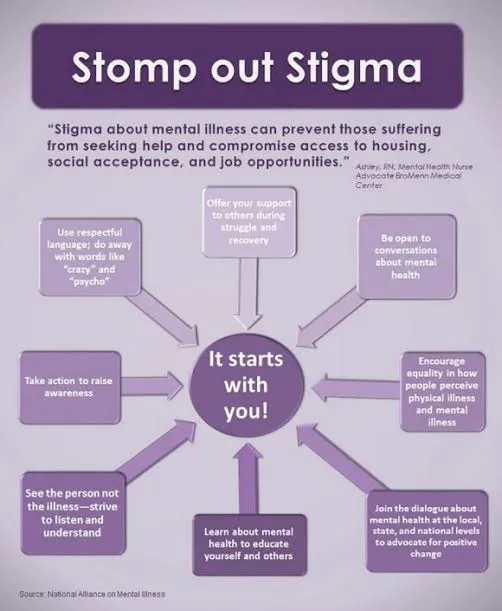STOPPING MENTAL HEALTH DISORDERS
The burden mental health poses to the populace is one that has long been the focus of numerous studies and surveys. This is mainly to identify its prevalence and incidence, its causes, and figure out how to eradicate them to promote the existence of a healthier populace that is mentally healthy and capable of helping the nation progress. The mental health burden is especially high amongst the teenagers and the youth generally, likely due to the many changes they have to go through at that stage, physically, emotionally, sexually, psychologically, and in many other spheres of life. There is currently a teen suicide pandemic in the United States of America. Suicide is now recognized as the second leading cause of death among Americans between 7 and 24 – second only to vehicular and accidental death. Mental health conditions among children, teens, and young adults - specifically, depression, anxiety, substance abuse disorders, and an alarming trend toward suicide - is a growing problem in this country. The suicide rates have gone up since the pandemic, which is probably due to the lack of social gatherings and communication associated with the period, which is essential for mental well-being. A December story in an Arizona newspaper, “With Teen Suicides on the Rise, Tucson Educators Struggle to Prioritize Mental Health,” described a 67% increase in teen suicides in 2020 compared with 2019 in one county. A lot of those affected have also experienced limitations in accessing the appropriate mental healthcare needed due to the movement restrictions and the stigma associated with battling a mental illness. I think there is a long way to go in the battle against mental illnesses and prevention is always better than cure. A proactive approach to prevent illnesses, mixed with the treatment of the sick, maintained over a prolonged period, is necessary to ensure that the rise in mental illnesses is curbed.
The first step to solving a problem is identifying the problem. A good number of people are not well educated on the topic of mental health. They go about propagating myths and fallacies, spreading fear in the minds of people about this topic, and increasing the amount of stigma that people with mental illnesses have to deal with regularly. Therefore, multiple awareness and sensitization programs should be organized in local communities at the grassroots to educate the people about mental health, how it can be achieved, and the signs of dwindling mental health status. The population should also be made aware of the fact that there is no need to stigmatize or discriminate against people with mental health issues, and that mental health issues can be treated or managed and it does not mean the end of the world for those affected. Repetition begets memory consolidation. Therefore, I posit that these awareness programs should not be a one-time thing, rather, they should be conducted on a fairly regular basis to consolidate all the information in the minds of the people and help those affected to know that the government knows about them and considers them also, that they are important, cared for, and deserving of love just as much as anyone else. Parents and guardians of children should be educated about paying attention to their children or wards and not miss possible signs of dwindling mental health status. Some of these signs include prolonged self-isolation and withdrawal from family and friends, disinterest in activities previously enjoyed, irritability, secretiveness and/or excessive tiredness, changes in sleep patterns and appetite, declining grades or involvement in school, mood instability that can range from sadness and apathy to aggression, and many more. Propagating all of this useful information will allow for early detection of any potential mental health issues so that they may be addressed on time before the situation worsens and the patient is teetering on the edge of permanent damage.
Multiple support groups should be set up in communities at the grassroots for people living with mental illnesses. This one act has multiple benefits that would help people living with mental illnesses. At such support groups, people living with mental illnesses would see that they are not alone in their fight and would find it easier to talk and share their feelings in the midst of those who they feel would understand them, after all, a problem shared is a problem half-solved. The great Maya Angelou once said, and I quote, “There is no greater agony than bearing an untold story inside of you.” From this quote, we can understand the fact that sharing a problem with someone else significantly lessens the burden of that problem. At such support groups, activities such as regular medical check-ups can be organized for the attendees to save the cost of going to a hospital and the long waiting hours they would encounter there. The attendees are also able to learn from one another's experiences about how best they dealt with any difficult situations that they might have encountered while dealing with their conditions. This would be an adequate learning experience for people who are not able to cope with their conditions very well, to learn the coping mechanisms of others like them and find out which ones work best for them. They also get the benefit of finding a new home, surrounded by people who understand what they're going through, who understand them, and are willing and able to help them through their conditions. These support groups should be funded by the government and their activities should be closely monitored to ensure that the funds are managed appropriately and are not being mismanaged. Parties can also be set up once in a while, courtesy of these support groups, to cheer the members up and make them secrete endorphins that will make them happy. These support groups should be organized at various spots all over the nation to make sure that a very large number of people are reached by them. Self-help organizations have proliferated over the past several decades, as advocacy groups, alternatives, and supplements to conventional services, often in the spirit of helping foster empowerment and recovery.
The government needs to also advocate for policies that would aim at addressing the causes of these mental health issues, thereby ensuring that a lot of people never even develop mental illnesses in the first place or their conditions do not worsen before they get treatment. After all, prevention is better than cure, they say. Some of these kinds of policies will include incorporating mental health services into primary healthcare. If a person with mental health issues can be identified when they come for a routine check-up, or when they come to have their headache evaluated, then they can be advised on how to get the appropriate care that they need. A significant amount of activities such as body shaming, cyberbullying, and racist remarks occur on social media every day. These acts threaten the emotional and mental wellbeing of people that are affected and some people end up succumbing to these actions and think less of themselves, then they begin their journey towards mental illness. If strong policies were created that forbid cyberbullying and meted out stern punishments to its offenders, there would be a reduction in the number of victims. This would eventually translate to a reduction in the number of mental health issues that occur as a result of such atrocities. Another major cause of mental trauma is abuse, whether it be physical, emotional, or particularly, sexual. Sexual predators have left a good percentage of their victims traumatized for life with their actions, and the larger percentage of their victims are teenagers that they know they can easily overpower and subdue. Very strict policies should be created and implemented that ensure that people who are found guilty of these crimes are severely punished and an example is made out of them for other budding offenders to witness so they know that their actions carry grave consequences. A decrease in the number of abused individuals will ultimately translate to a decrease in the number of mental health ailments that occur as a result. Chemical substance abuse, alcohol, and cigarette smoking have all been associated with decreased mental health also. More awareness about the dangers of these acts will go a long way in ensuring that mental illnesses have a decline. Stricter policies should also be set up to ensure that these substances are not sold to teenagers below eighteen years of age.
After preventing and creating awareness about mental illnesses, then we have to
ensure that those who do have it have access to the best treatment and care possible. First, all doctors should be trained in mental health issues so they can identify and treat these issues when patients come to them as primary healthcare providers. It is well documented that primary care physicians encounter many patients in their practice who suffer psychiatric morbidity, especially affective, anxiety, and substance abuse disorders. These physicians have been unable to effectively address the needs of these patients, over half of whom receive care exclusively in the primary care sector. Mental healthcare facilities should also be set up at multiple locations across the country to enable the populace to have access to adequate mental healthcare. This care should also be subsidized by the government so that it is made available to those who might be constrained financially to access it. All of these things are put together to give us a fighting chance against the menace of mental illnesses.
In conclusion, a combination of prevention and cure of these mental illnesses is necessary to ensure a definite decrease in the incidence of these mental health disorders. Various policies targeting the causes of these mental disorders while aiming to stop them should be created and implemented properly to enhance the prevention of these disorders. Awareness and sensitization campaigns should be conducted frequently to educate people about mental illnesses, encourage people to seek treatment, and limit the level of stigmatization and discrimination against people living with mental illnesses. Support groups should be set up to allow people with mental illnesses to find a haven where they can share their problems and experiences while finding comfort in knowing that they are not alone and knowing that others are living well and that they can too. Finally, all doctors should receive some measure of training in mental health issues so that these issues can be identified early enough when patients come to them for treatment of other illnesses. If all of these things were put into practice, I see a country with citizens that are the healthiest versions of themselves.
